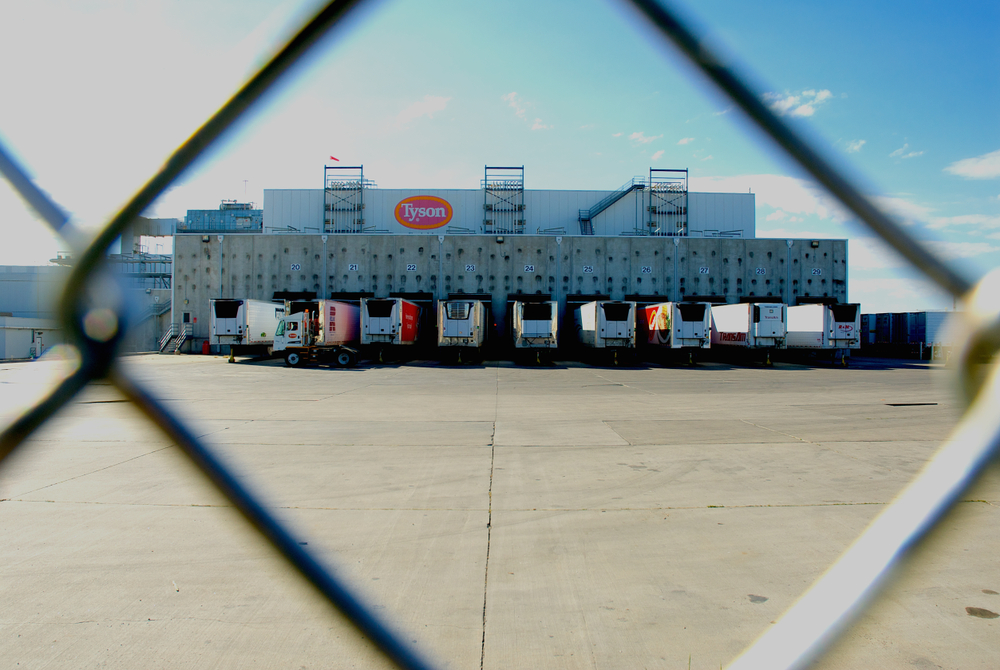Biden’s Latest Executive Order Gets It All Wrong
Joel Salatin|July 20, 2021

President Biden just issued an executive order that gives farmers the right to sue their corporate sponsors.
Before anyone thinks this is a good thing… let me explain what’s going on here.
Usually, the word “sponsor” has a positive connotation… but in this instance, it doesn’t.
As a result of increased consolidation in the agriculture sector, large corporations create markets for farmers through preproduction agreements.
Here’s an example…
Tyson signs a production contract with a farmer to raise chickens. Tyson provides the chickens, the feed and the market. The farmer provides the building and the caretaking.
In this way, Tyson sponsors the farmer.
But these agreements, written by corporate attorneys and bean counters, have eroded farmers’ freedoms and boxed producers into tightly constrained compensation formulas and protocols.
In fact, more and more folks are calling these arrangements a “new colonialism” or a “voluntary serfdom.”
Of course, nobody put a gun to the head of these farmers and forced them to sign their lives and livelihoods over to these big outfits. The idea of a guaranteed market at an agreed-upon price sure sounded good to struggling farmers… at first.
But over time, the sponsoring companies tweaked the contracts to favor their interests over the farmers’.
Now the farmers are angry, feel trapped and enslaved, and want government relief.
But as usual, the government’s going about it all wrong.
The Better Solution
Biden’s executive order offers relief by giving these farmers more leverage to sue.
If Biden and his cronies really wanted to help farmers, they would not simply give them the right to sue. They would reinstitute historic freedoms like the right to private contract.
This latest rearrangement of the deck chairs on the Titanic doesn’t do anything to promote a free market cure for what the government has taken away.
The right to life, liberty and the pursuit of happiness is bound up in property.
The freedom to do what I like with what is mine. The ability to own something.
This was the great American experiment. You didn’t have to get a letter from the king. You didn’t have to be born with a social title.
Anyone, through hard work and perseverance, could pursue and ultimately acquire something they could own.
That meant the freedom to sell it as well as to buy it.
America’s founders could not have envisioned a time when selling a cup of milk from my cow to a neighbor would be illegal. When making a pot pie and selling it to your uncle would be illegal. When butchering a hog and selling its abundance to neighbors would be illegal.
These scenarios and many more could not have been imagined by those early framers of our Constitution.
But regulatory creep banished those freedoms. Farmers’ access to markets eroded.
One of my favorite classic farming books is D. Howard Doane’s Vertical Farm Diversification, written in the 1950s. It suggested that entrepreneurial enterprises were the way forward for farmers, showing, for example, pictures of home-canned applesauce being shipped to city buyers through the postal service.
Back then, home-processed meats and poultry could be canned, boxed and shipped via the postal service to urban customers, doorstep to doorstep.
Supermarkets were just getting started. Today’s mega-corporate agricultural giants were fledgling entrepreneurial businesses.
Eventually, consumers opted for the supermarket rather than patronizing their rural neighbors. Farmers opted for the comfort of production rather than the trouble of interacting with consumers.
Government bureaucrats were more than happy to encourage this transition. They did so through inspections and licensing agencies that added many hurdles to any direct marketing endeavor.
The farmers who wanted to interact with consumers, who wanted to enjoy retail sales and urban-to-rural connections, gave up their dreams. Compliance was simply too tough for small operators to survive.
Local canneries died. Local abattoirs died. The entire community-based food system vanished.
But a new awareness has come to America. From farmers markets and cooking shows to the empty supermarket shelves we saw in 2020, millions of people realized that regional foodsheds are more secure than industrialized global supply chains.
Now Biden has thrown farmers a fig leaf: They can sue their oppressors if they want to.
What kind of remedy is that? It’s a joke.
A real remedy would be to bring back the freedom of commerce enjoyed in the 1950s.
Today’s distribution logistics and real-time consumer rating system (thanks to the internet) make direct farm-to-consumer sales cheaper and more transparent than at any time in history.
Yet we flounder, stuck with the notion that a bureaucrat must interfere with every food transaction, driving up costs, reducing access and criminalizing the best answer to subservience – a free market.
Restoring the freedoms of the 1950s would create a tsunami of neighbor-to-neighbor choice and entrepreneurship that would collapse the stranglehold of Big Ag.
Biden’s executive order does nothing to address the root cause of these issues. We have to remove the shackles constraining farmers from selling and consumers from buying the food of their choice.
Restoring historic liberty is the answer.

Joel Salatin
Joel Salatin calls himself a Christian libertarian environmentalist capitalist lunatic farmer. Others who like him call him the most famous farmer in the world, the high priest of the pasture, and the most eclectic thinker from Virginia since Thomas Jefferson. Those who don’t like him call him a bioterrorist, Typhoid Mary, a charlatan, and a starvation advocate. With a room full of debate trophies from high school and college days, 12 published books, and a thriving multigenerational family farm, he draws on a lifetime of food, farming and fantasy to entertain and inspire audiences around the world.



